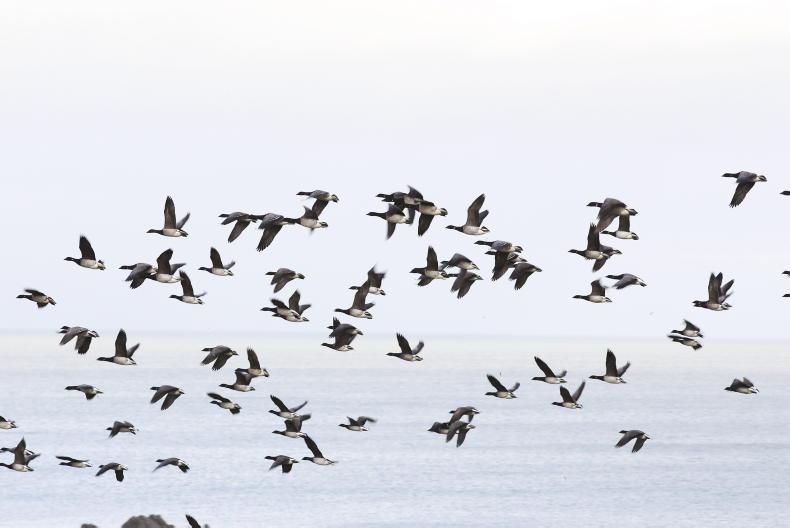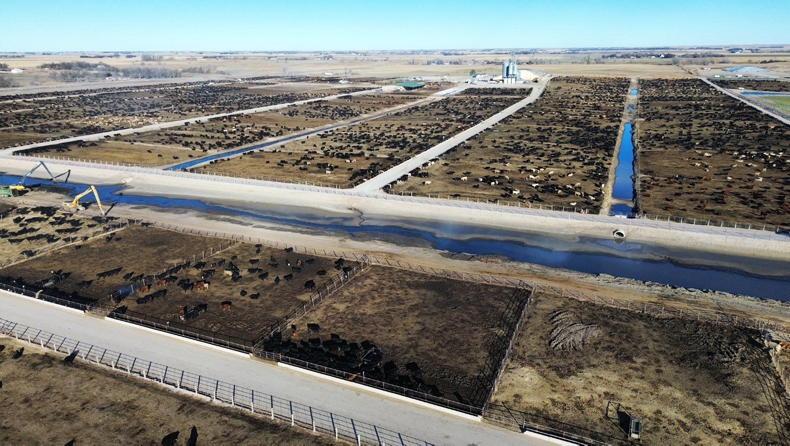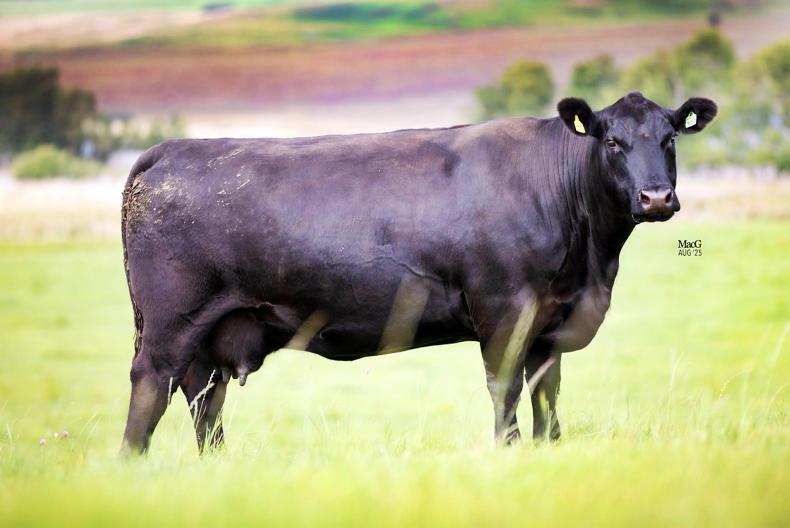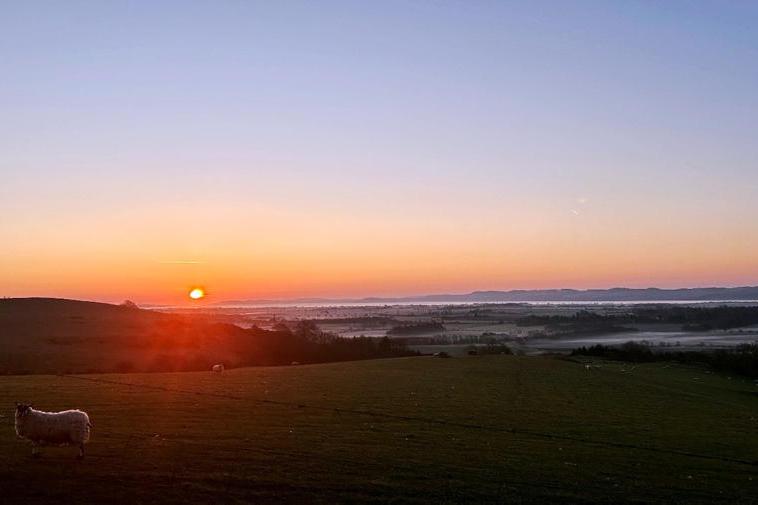Scotland’s largest pig abattoir Quality Pork Processors (QPP) in Brechin has been bought by Browns Food Group.
This follows months of uncertainty over the future for the business which employs around 100 staff.
The Dumfries-based Browns Food Group produces cooked, convenience and delicatessen meat and salmon products from two sites in the south west of Scotland. This will be the first abattoir it has owned.

Brechin abattoir kills around 4,000 pigs per week
Brechin is Scotland’s major pork processing site, which had been owned by Quality Pork Ltd (QPL) in a close collaboration between Scottish Pig Producers (SPP), and Scotlean, both pig farmer cooperatives, and Pilgrim’s Pride UK Ltd.
Speaking on the deal, Browns CEO Wayne Godfrey said: “This acquisition demonstrates our deep commitment to a sustainable Scottish pig industry, for both our customers and consumers of Specially Selected Pork and Scottish Pork.
“It provides the opportunity for Browns to process high-welfare local pork for our own manufacturing sites as well as for retail, food service and wholesale channels. In addition, we will reduce food miles with improved logistics, efficiencies, and closer management of welfare.”
Last year the Brechin plant lost its Chinese export licence after an outbreak of COVID-19 among staff. Since then, public health authorities have given the plant the all clear but China has yet to reinstate the licence, with pork still locked out of this important market.
The plant was also affected by a fire in the summer of 2017 and was hit by a CO2 shortage in 2018. Built in 2016, it is able to kill 7,500 pigs per week but is currently killing 4,000.
The pigs for the plant are supplied by Scotlean and SPP. Andy McGowan, chief executive of SPPQ, said: “This fantastic news gives long-term market security for our hard-pressed pig farmers and we are excited to work with Browns Food Group and the skilled team at Quality Pork Processors to develop new and innovative market opportunities for Specially Selected Pork.
“It allows us to get back to doing what we do best – family farms co-operating to provide the Scottish public with affordable, nutritious, high quality food.”
QMS Chair, Kate Rowell said: “Despite the challenges the pig industry has felt in recent times, we are confident that the strong experience Browns holds will ensure a smooth transition of the Brechin site which in the longer term will help alleviate some of the ongoing pressures faced by the sector.
“Our priority remains to support producers of Specially Selected Pork and Scottish Pork to uphold robust whole-chain assurance so that animals have the best quality of life on farm, and high standards that continue throughout the live supply chain, resulting in the highest quality product from field to fork.”

Crofters claim there are 8,000 geese on the Uists, twice the agreed limit.
Scottish crofters are having to contend with unsustainable goose numbers on their land eating precious grass. The Scottish Crofting Federation (SCF) has been explaining the challenge to Minister for the Environment Mairi McAllan, saying not only are their businesses affected, but biodiversity is too.
“The population of greylag geese resident in the Hebrides has reached unsustainable numbers,” said the SCF chair Donald MacKinnon.
“An agreed maximum of 4,000 for the Uists, which in itself is higher than crofters want, has doubled since the end of the ‘adaptive management’ scheme that was funded by the Scottish Government.
“NatureScot, which holds the purse strings, has stopped all funding and we can see no hope of preventing an explosion in goose numbers. We have 8,000 birds on the Uists now and could be over the tipping point – where crofting ceases. The situation is similar for other Hebridean islands.
“We met with the Minister for the Environment yesterday to present the case for why funding is needed to help reduce numbers.
“The government intention to make the control of geese a self-funding enterprise has failed. We argue that it is in everyone’s interest to stop this catastrophe continuing.
“Crofting agricultural practices in the Hebrides, especially on the Machair, help to nurture an ecosystem rich in biodiversity, something we must protect for all.
“The huge numbers of geese grazing and fouling the grass and heritage cereal crops will end crofting here. This will alter the ecosystem to the detriment of the other species we find here. We are seeing the destruction of a world-renowned natural heritage unfolding before our eyes.”
NatureScot said: “NatureScot supported local goose management groups to trial methods to control greylag geese with the view that groups would then use their expertise on the ground to manage populations sustainably once funding for these adaptive management projects had come to an end.
“As planned, while we continue to work with groups on sustainable approaches to controlling resident greylag geese and their impacts on agriculture, our role has now shifted to an advisory role.”
Rising milk price
across the sector
Scottish dairy farmers are seeing their milk cheque swell this spring, with most processors now paying around 35p/l for liquid milk. First Milk announced a 1p/l rise from 1 April, which takes its price to 35.75p/l for a manufacturing standard litre. The price rise is split into two components – 0.5p/l for the constituent payments and a further 0.5p/l for the introduction of the previously announced regenerative farming bonus, which is payable to all members who have completed their regenerative farming plans.
Commenting on the announcement, Robert Craig, farmer director and vice-chair, said: “We know that our members face considerable inflationary cost pressure and we’ve been focused on delivering milk price increases to help address this. Since December this has amounted to an additional 3.75p/l, taking our current milk price to 34.75p/l for March on a manufacturing standard litre.
“We are pleased to announce a further 1.0p/l increase for April, including the important recognition of our commitment to regenerative farming principles with the introduction of our regenerative farming bonus.”
Müller Direct customers are due to receive 35p/l from 1 March and Arla 34.98p/l for its manufacturing standard milk.
Steaks in demand
for valentines
People are 14 times more likely to eat steak in February than any other time of the year according to AHDB. 
.
The week before 14 February sees beef steak sales rise 26% compared to the average. The increase number of steaks eaten makes Valentine’s Day the second most expensive home meal after Christmas. People spend an average of £2.16 per person compared to a standard occasion at £1.30.
All cuts of beef steak saw volume uplift, with sirloin up 34% and both fillet and ribeye up 29%, showing that consumers were willing to pay more for a ‘treat’ to celebrate the romantic occasion.
Scotch premium
posted missing
The Northern English price for an R4L steer has been above the Scottish price since September according to AHDB.
Historically, Scottish beef farmers have been accustomed to being paid the best price in the UK but such a prolonged period in second place has not occurred for years.
Cattle prices have risen for the last two years across Britain, which was underpinned by a tighter supply overall which can be traced from the Beast from the East.
This was then helped by the pandemic shifting buying patterns towards supermarkets and butchers which increased demand for domestic beef.
Supply in England of cattle at ages ready to kill is back according to Defra figures. While Scottish cattle numbers for 18- to 24-month-old cattle are actually up on the year by around 8,000.
Scotland’s largest pig abattoir Quality Pork Processors (QPP) in Brechin has been bought by Browns Food Group.
This follows months of uncertainty over the future for the business which employs around 100 staff.
The Dumfries-based Browns Food Group produces cooked, convenience and delicatessen meat and salmon products from two sites in the south west of Scotland. This will be the first abattoir it has owned.

Brechin abattoir kills around 4,000 pigs per week
Brechin is Scotland’s major pork processing site, which had been owned by Quality Pork Ltd (QPL) in a close collaboration between Scottish Pig Producers (SPP), and Scotlean, both pig farmer cooperatives, and Pilgrim’s Pride UK Ltd.
Speaking on the deal, Browns CEO Wayne Godfrey said: “This acquisition demonstrates our deep commitment to a sustainable Scottish pig industry, for both our customers and consumers of Specially Selected Pork and Scottish Pork.
“It provides the opportunity for Browns to process high-welfare local pork for our own manufacturing sites as well as for retail, food service and wholesale channels. In addition, we will reduce food miles with improved logistics, efficiencies, and closer management of welfare.”
Last year the Brechin plant lost its Chinese export licence after an outbreak of COVID-19 among staff. Since then, public health authorities have given the plant the all clear but China has yet to reinstate the licence, with pork still locked out of this important market.
The plant was also affected by a fire in the summer of 2017 and was hit by a CO2 shortage in 2018. Built in 2016, it is able to kill 7,500 pigs per week but is currently killing 4,000.
The pigs for the plant are supplied by Scotlean and SPP. Andy McGowan, chief executive of SPPQ, said: “This fantastic news gives long-term market security for our hard-pressed pig farmers and we are excited to work with Browns Food Group and the skilled team at Quality Pork Processors to develop new and innovative market opportunities for Specially Selected Pork.
“It allows us to get back to doing what we do best – family farms co-operating to provide the Scottish public with affordable, nutritious, high quality food.”
QMS Chair, Kate Rowell said: “Despite the challenges the pig industry has felt in recent times, we are confident that the strong experience Browns holds will ensure a smooth transition of the Brechin site which in the longer term will help alleviate some of the ongoing pressures faced by the sector.
“Our priority remains to support producers of Specially Selected Pork and Scottish Pork to uphold robust whole-chain assurance so that animals have the best quality of life on farm, and high standards that continue throughout the live supply chain, resulting in the highest quality product from field to fork.”

Crofters claim there are 8,000 geese on the Uists, twice the agreed limit.
Scottish crofters are having to contend with unsustainable goose numbers on their land eating precious grass. The Scottish Crofting Federation (SCF) has been explaining the challenge to Minister for the Environment Mairi McAllan, saying not only are their businesses affected, but biodiversity is too.
“The population of greylag geese resident in the Hebrides has reached unsustainable numbers,” said the SCF chair Donald MacKinnon.
“An agreed maximum of 4,000 for the Uists, which in itself is higher than crofters want, has doubled since the end of the ‘adaptive management’ scheme that was funded by the Scottish Government.
“NatureScot, which holds the purse strings, has stopped all funding and we can see no hope of preventing an explosion in goose numbers. We have 8,000 birds on the Uists now and could be over the tipping point – where crofting ceases. The situation is similar for other Hebridean islands.
“We met with the Minister for the Environment yesterday to present the case for why funding is needed to help reduce numbers.
“The government intention to make the control of geese a self-funding enterprise has failed. We argue that it is in everyone’s interest to stop this catastrophe continuing.
“Crofting agricultural practices in the Hebrides, especially on the Machair, help to nurture an ecosystem rich in biodiversity, something we must protect for all.
“The huge numbers of geese grazing and fouling the grass and heritage cereal crops will end crofting here. This will alter the ecosystem to the detriment of the other species we find here. We are seeing the destruction of a world-renowned natural heritage unfolding before our eyes.”
NatureScot said: “NatureScot supported local goose management groups to trial methods to control greylag geese with the view that groups would then use their expertise on the ground to manage populations sustainably once funding for these adaptive management projects had come to an end.
“As planned, while we continue to work with groups on sustainable approaches to controlling resident greylag geese and their impacts on agriculture, our role has now shifted to an advisory role.”
Rising milk price
across the sector
Scottish dairy farmers are seeing their milk cheque swell this spring, with most processors now paying around 35p/l for liquid milk. First Milk announced a 1p/l rise from 1 April, which takes its price to 35.75p/l for a manufacturing standard litre. The price rise is split into two components – 0.5p/l for the constituent payments and a further 0.5p/l for the introduction of the previously announced regenerative farming bonus, which is payable to all members who have completed their regenerative farming plans.
Commenting on the announcement, Robert Craig, farmer director and vice-chair, said: “We know that our members face considerable inflationary cost pressure and we’ve been focused on delivering milk price increases to help address this. Since December this has amounted to an additional 3.75p/l, taking our current milk price to 34.75p/l for March on a manufacturing standard litre.
“We are pleased to announce a further 1.0p/l increase for April, including the important recognition of our commitment to regenerative farming principles with the introduction of our regenerative farming bonus.”
Müller Direct customers are due to receive 35p/l from 1 March and Arla 34.98p/l for its manufacturing standard milk.
Steaks in demand
for valentines
People are 14 times more likely to eat steak in February than any other time of the year according to AHDB. 
.
The week before 14 February sees beef steak sales rise 26% compared to the average. The increase number of steaks eaten makes Valentine’s Day the second most expensive home meal after Christmas. People spend an average of £2.16 per person compared to a standard occasion at £1.30.
All cuts of beef steak saw volume uplift, with sirloin up 34% and both fillet and ribeye up 29%, showing that consumers were willing to pay more for a ‘treat’ to celebrate the romantic occasion.
Scotch premium
posted missing
The Northern English price for an R4L steer has been above the Scottish price since September according to AHDB.
Historically, Scottish beef farmers have been accustomed to being paid the best price in the UK but such a prolonged period in second place has not occurred for years.
Cattle prices have risen for the last two years across Britain, which was underpinned by a tighter supply overall which can be traced from the Beast from the East.
This was then helped by the pandemic shifting buying patterns towards supermarkets and butchers which increased demand for domestic beef.
Supply in England of cattle at ages ready to kill is back according to Defra figures. While Scottish cattle numbers for 18- to 24-month-old cattle are actually up on the year by around 8,000.













SHARING OPTIONS